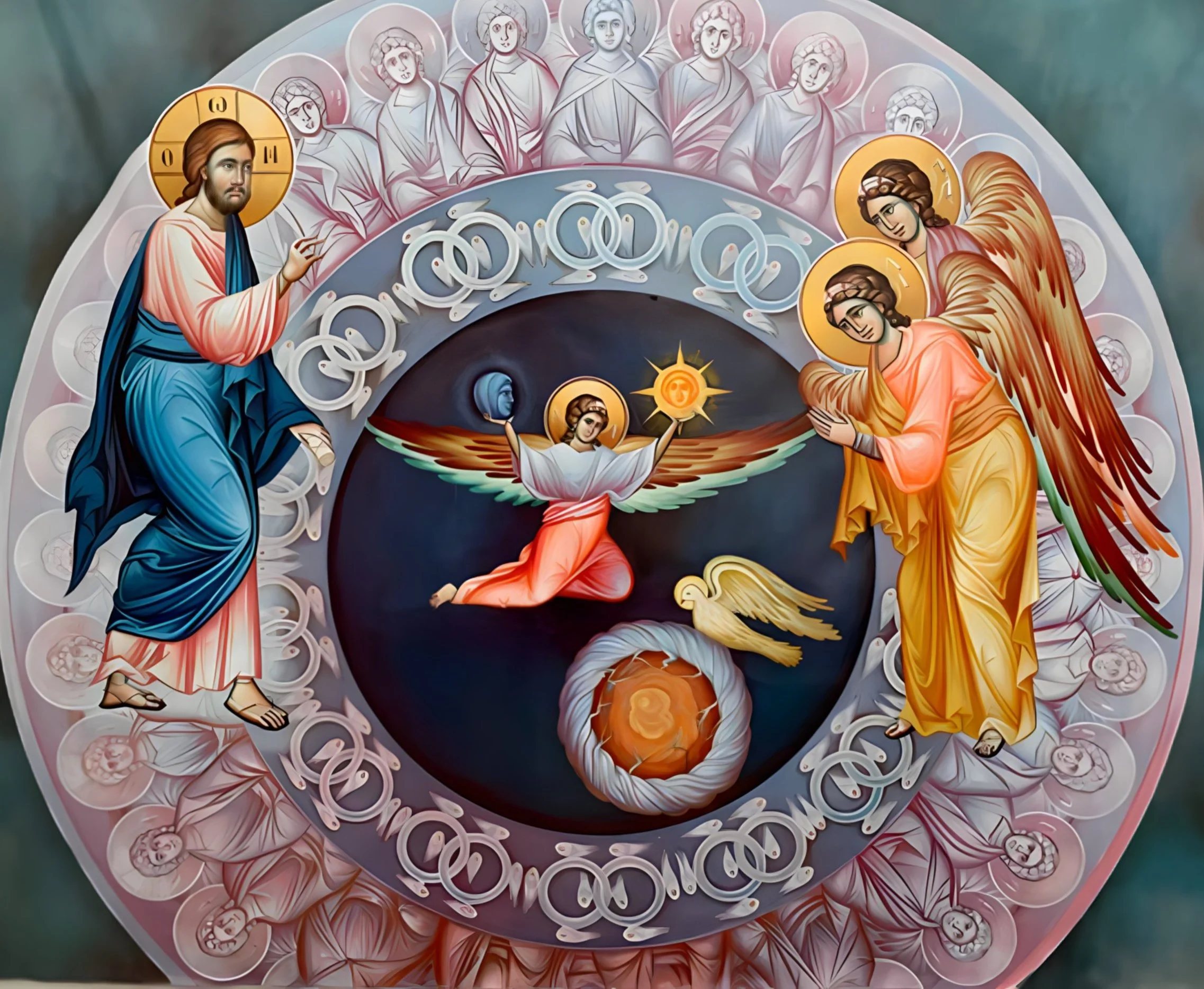
PARENT PAGE
“When you fall down before God in prayer, become in your thought…like a tiny lisping child. Do not say anything before Him with knowledge, but with a child’s manner of thought draw near to God and walk before Him, that you may be counted worthy of that paternal providence.”- Saint Isaac the Syrian
Indeed it is true when our Lord says that we must be like children. “Truly I say to you, unless you turn and become like children, you will never enter the kingdom of heaven. Whoever humbles himself like this child, he is the greatest in the kingdom of heaven.” (Matthew 18:3-4)
The innocence of children is a beautiful thing. Our Lord points to a little child as an example of a disciple of Christ. Little children are innocent, simple, humble and loving. An example of this is when a child, in the midst of fear and anxiety, holds on to their parents as tight as they can. A child has full confidence that their parent will protect and watch over them.
As children of God, we too have a loving parent, God the Father, to watch over us and protect us. He will be with us always. Children need to be taught this – and what better example can we share with them than God, our loving Father, protecting us.
Children develop at all different levels and stages. While two siblings might experience the same thing, they understand and comprehend this same event at two different and distinct levels. To help our children better deal with the tragic events that took place on September 11, the Department of Youth and Young Adult Ministries is providing this Developmental Activity Guide to Deal with Grief and Tragedy for Families. We pray that this will assist you in nurturing your child.
This guide highlights some of the social-emotional milestones that children are experiencing at different ages. Below each stage, we have provided a few activities that may help your child (and you) deal with this tragedy. Some of the activities are appropriate to do with different ages as well-- so use your judgment. You know your child best. We have also provided a suggested reading list for children. This is a small sample of the wonderful resources available through children’s literature to help your child with this tragedy.
Nurturing Your Child Through Ages and Stages
GENERAL SUGGESTIONS THAT CROSS THE AGES
Not only is this a stressful time for children but for adults as well. With everything going on in the world, it is easy to forget what matters most. Our children need us more than ever to pray with them, hold them, listen to them and play with them. There are many terrible things going on in the world but in the eyes of your child, you have a reminder of God’s love.
BIRTH TO 18 MONTHS
Young children grow and develop rapidly. No time is this more apparent than the first 18 months of life. Think of a newborn and then think of an 18 month old, --total dependence to blossoming and sometimes brazen independence. Newborns enter this world and use their parents to help them make sense and help them participate in the world around them. Their parents are their world.
18 MONTHS TO 36 MONTHS
Children at this age are developing who they are separate from their parent. They are venturing away from parents more, but from time to time, will become clingy and insecure with previously accepted situations. These 18 months are a huge time for emotional development. They will begin to display jealousy, fear, anger, sympathy, modesty, guilt joy, frustration and pride.
PRESCHOOL AGE CHILDREN (3 AND 4)
At this age, children have a better understanding that their emotions are caused by something. Their emotions are more diverse and organized. It is not uncommon for children at this age to develop new fears. These fears are cause from a widening understanding of the world around them and increased independence.
KINDERGARTEN TO SECOND GRADERS
At this age, the fears children had in preschool have decreased. Categorization of people into race and social status are not something that they fully understand. They will be very aware of what is going on with the tragedy. They also may have a lot of misinformation from friends at school.
THIRD TO SIXTH GRADERS
Children of this age are more logical thinkers. They can take a series of distant events and relate them together. They understand the ability to feel more than one emotion at a time such as love and hate. They are more aware of leadership roles and the world than early elementary school children.
JUNIOR HIGH AND HIGH SCHOOL STUDENTS
Adolescents are able to think more abstractly than younger children. They will have a better understanding of the events that have occurred and an understanding that the impact of them is larger than the tragedy itself. Adolescents are very interested in concepts of justice, equality, power and control. They will also have many more questions regarding these concepts and issues of faith. They probably have many fears about the future but may not want to discuss it or admit that they are scared.







